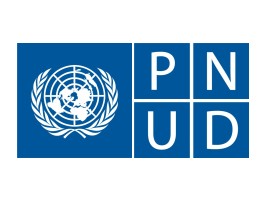|
||||||||||||||||||
|
|
Haiti - Reconstruction : UNPD, 4 years of efforts to recover Haiti 18/01/2014 08:47:32
More than 80% of the 10 million cubic meters of debris generated by the earthquake have been cleared from the streets of Port-au-Prince. This pace was much faster than that recorded in 2004 after the tsunami in Indonesia. A UN intervention not only cleared one million cubic meters of rubble but also recycled the debris, turning it into paving stones, stairs and public places where today children can play. This initiative is still underway in the town of Léogâne. To help in the fight against poverty in the country, UNDP has been working for the past four years with relevant ministries to support the transition from emergency to development and to ensure that recovery efforts are sustained, integrated directly into public policy and managed by the Haitian institutions. Following the management and recycling of debris projects, this approach led to the creation of an Inert Waste Management Unit that was established within the Ministry of Public Works, Transport and Communications. Furthermore, technical support from UNDP helped the government establish the Coordination Unit for Housing and Public Buildings Construction and the launch of the National Housing and Habitat Policy, which arose from the actions of the 16 neighbourhoods/6 camps project that saw to the relocation of more than 11,000 displaced families and the closure of 50 camps and revitalize public spaces. In the same spirit to keep Haitians at the heart of the decisions taken for their own neighbourhoods, UNDP continued to build community platforms in 2013. These eight platforms consist of 160 men and women from different sectors of community life whose choices have been approved by the people and the government. Through targeted training programmes and infrastructure projects directly managed by them, the platforms learn how to better meet the needs of their communities while deciding the development priorities of their own neighbourhoods, from rehabilitation of roads to job creation through to vocational training, or evaluation of urban risk and the installation of solar lamps to ensure the safety of women at night. In parallel with this integrated approach, fighting against poverty at the national level requires identification of the most vulnerable families. The creation of a single registry of beneficiaries has been initiated through a series of household surveys conducted by government social workers. This registry is a key tool to better channel resources to the most vulnerable. With the technical expertise of UNDP, nearly 15,000 households in precarious areas have been identified, representing nearly 100,000 people, and classified according to their level of vulnerability. The registry has already been put to use as part of social protection programmes implemented by the Government’s Economic and Social Assistance Fund. The objective of sustainability through these initiatives remains at the heart of UNDP’s work to reduce poverty within the framework of the Millennium Development Goals (MDGs), whose deadline is 2015. A national MDG monitoring report will be published in 2014 in partnership with the Government of Haiti. While these interventions continue to bear fruit, Haiti still has enormous hurdles to clear before it can secure its position as an emerging country in 2030. These challenges can only be tackled in partnership under the aegis of the national authorities, with the commitment of the Haitian people and the support of international partners. HL/ HaitiLibre
|
|
|
Why HaitiLibre ? |
Contact us |
Français
Copyright © 2010 - 2024 Haitilibre.com |



